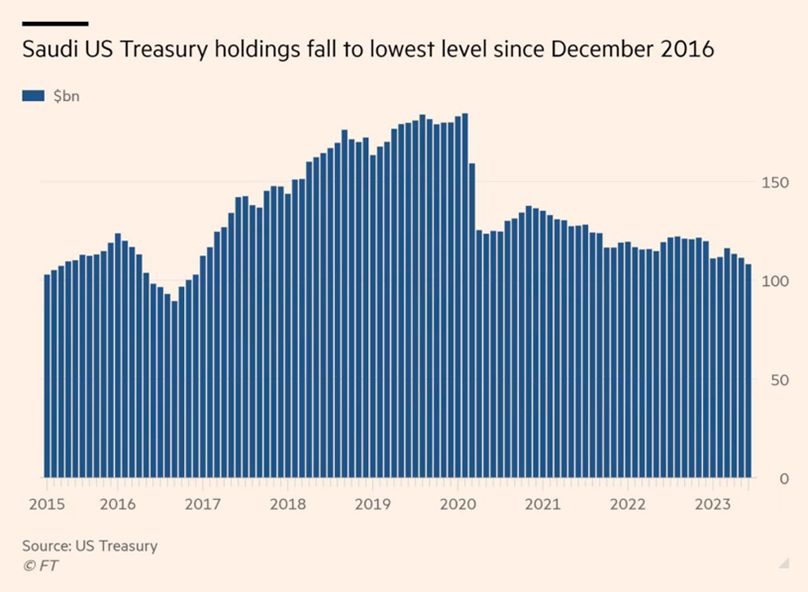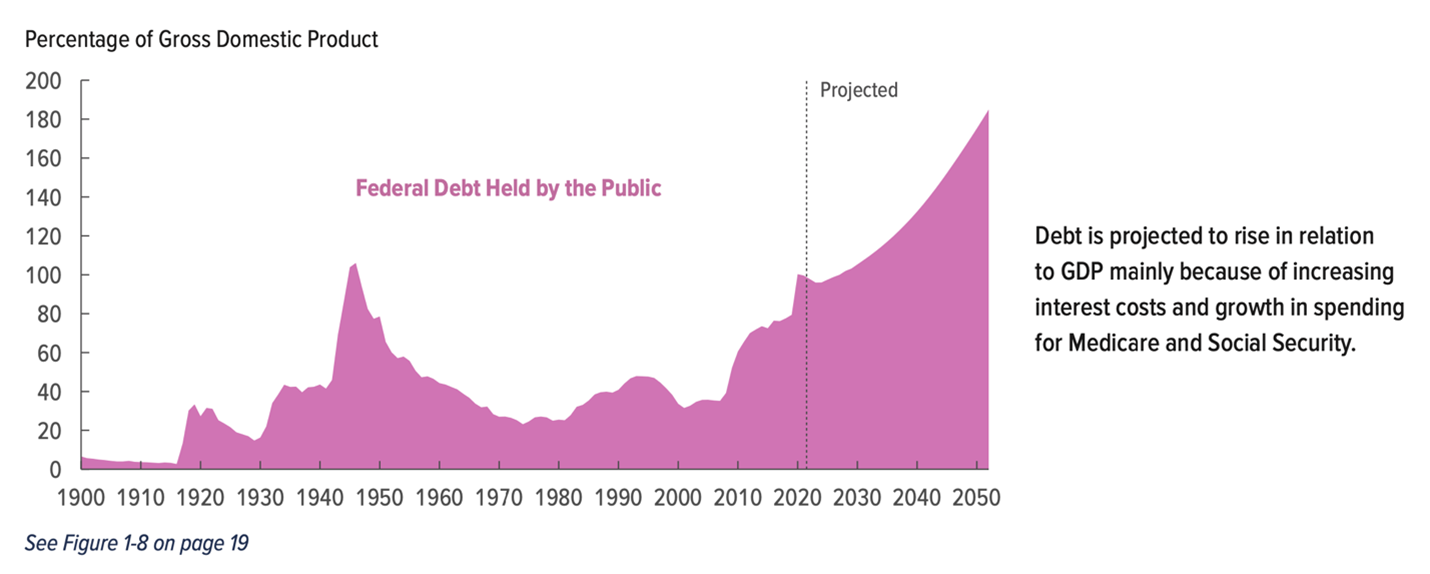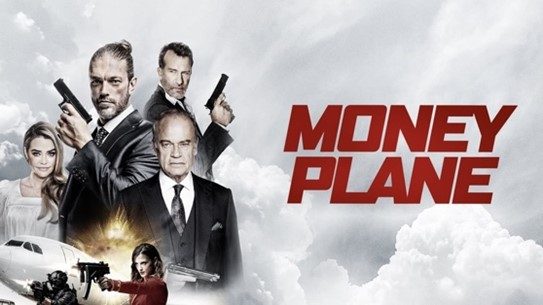

The race against the clock to beat Hurricane Idalia was beyond anticlimactic. My flight change paid off as the 7 p.m. flight was canceled.
But if you were looking for an action film about a Florida man against nature…
This wasn’t it.
More on that in a moment.
For now, I want to show you a chart that’s far more scary than anything nature can hurl our way…
Witness to a Global Bond Brawl
In recent weeks, I’ve discussed America’s challenge ahead.
It’s not a dollar crisis that awaits; rather, we face a duration bond crisis.
China, facing pressure to stabilize the yuan, ordered banks to sell dollars and buy stocks. But they may need to dump U.S. Treasuries – and they have about $850 billion worth on the books.
Japan, meanwhile, has altered its monetary policy. A recent Yield Curve Control program would enable the shorter-term bonds to shift from 0.5% to 1.0% on the upper bound. Several insurance companies have taken a hit from falling U.S. bond prices – and they’d love to bring some money home if Japan continues to hike interest rates. That’s a big chunk of U.S. bonds.
And then there’s Saudi Arabia. The nation has spurned this administration at every turn, from refusing to raise OPEC production to keep oil prices low to enhancing its relationships with Russia, China, and other economic competitors with the U.S.
The Financial Times produced this chart on Wednesday.

Saudi holdings of U.S. Treasuries are now down to 2016 lows.
Now, the Saudis are not among the Top 10 holders of U.S. debt. But Japan, China, the United Kingdom, and a large basket of emerging markets are.
With people like Paul Krugman calling for the Fed to give up and raise the inflation target to 3% (from 2%), this puts pressure on the desire for long-term U.S. bonds sitting at 4.2%.
The Treasury Department wants buyers of bonds ranging from 10 years to 30 years… but no one wants to own them.
So, who will own all this debt – especially if other nations begin to turn away from our Treasury bills and turn to other assets like gold or emerging-market debt?
If You Can’t Spot the Sucker at the Table…
Well, I hate to be the bearer of bad news… but the Congressional Budget Office says you are.
Americans will be stuck holding a bag - the bag, really - of long-duration bonds. Where they’ll get the money to buy them is anyone’s guess.
The chart I’m showing you is from the CBO report called “The Budget and Economic Outlook: 2022 to 2032.”
This chart shows that debt held by the public hit roughly 100%. Still, it’s expected to spiral much higher –to 200% by the time I turn 70 (and I’m receiving 50% of the money I put into Social Security and Medicare).

Remember that “public” is defined by individuals, corporations, foreign governments, and financial institutions.
Government securities, like Treasury bonds, notes, and bills, define debt.
Well, demand for U.S. bonds and bills may be dropping like a stone in the future from corporations, governments, and institutions.
So, individuals meaning… us… Americans.
It’s not like they haven’t tried to force Americans to own long-term bonds. About a decade ago, the Obama Administration tried to create a retirement program for all Americans called MyRA.
It would have required Americans to invest in long-term bonds. In addition, several U.S. agencies prohibit equity holdings in retirement accounts by certain employees. The plans all involve owning U.S. debt.
(Imagine if Congressional members couldn’t own stock but could only hold 30-year bonds. How would they behave about the debt?)
There’s Always Option No. 2
Another way to play it would mean the Federal Reserve – as buyer of last resort – has to suck up all of the bonds dumped by foreign nations and institutions.
But as we know, that would likely fuel challenges ahead where the central bank would need to roll over future debt… while Congress continues to authorize new paper to refinance debts.
While that might shore up the economy and prevent a liquidity crisis, it will only fuel greater performance for the equity market – which is again fueled heavily by credit and available capital.
The future will be wild…
I’ll just put it that way. But this will be a major trend – De-Americanization – that transforms the global financial markets over the next 10 to 15 years.
It parallels and complements other trends to see more capital chasing fewer resources like oil, metals, and more.
I’ll discuss this tomorrow… We may be facing a resource war… on top of a massive shift in our capital markets.
Meanwhile, Back in the Florida Republic
It was supposed to be a suspenseful day on Tuesday. It was a race against time to return to Florida before the hurricane. Perhaps a bumpy flight, dark clouds with lightning around the plane, sideways rain, and wind that blows luggage down the road.
It wasn’t.
Imagine the lamest summer action blockbuster…
Where a Florida resident rushes to the airport to beat a hurricane before it hits landfall, the movie begins…
Cut to: Florida man takes Uber to Baltimore Washington Airport…
Cut to: The ghost of Fidel Castro stands on the shores of Cuba, smoking a cigar and laughing as a hurricane builds around him.
Cut to: Florida man arrives at the airport two hours early. He laughs with the Clear employee, walks to the gate, and reads the Wall Street Journal.
Cut to: The wind blows on the property of the Florida Republic. A single leaf falls off a tree.
Cut to: Florida man sits in Southwest 2578 Seat 18D. He writes Postcards and reads about airline stocks.
Cut to: A trickle of rain falls on the Florida Republic.
Cut to: The Florida man’s wife picks him up. Tells him about her day. His daughter complains that the music isn’t loud enough.
Cut to: Their car enters the driveway. Florida man pets dogs.
Cut to: It rains for 15 minutes. Then, it stops completely.
Cut to: Florida man falls asleep on the couch.
Cut to: The following day – it’s sunny outside.
-End-
I don’t have much future as an action writer in film, but maybe I can cross the picket line while this Hollywood strike continues. I’m sure they’ll buy and rewrite it into something horrible, like a remake of the Kelsey Grammar film Money Plane.

Con Air is a bad movie.
But Con Air is The Godfather compared to Money Plane.
I expected more out of my day.
At least I got to witness a religious revival on the plane.
Stay positive,
Garrett Baldwin
Secretary of Finance


